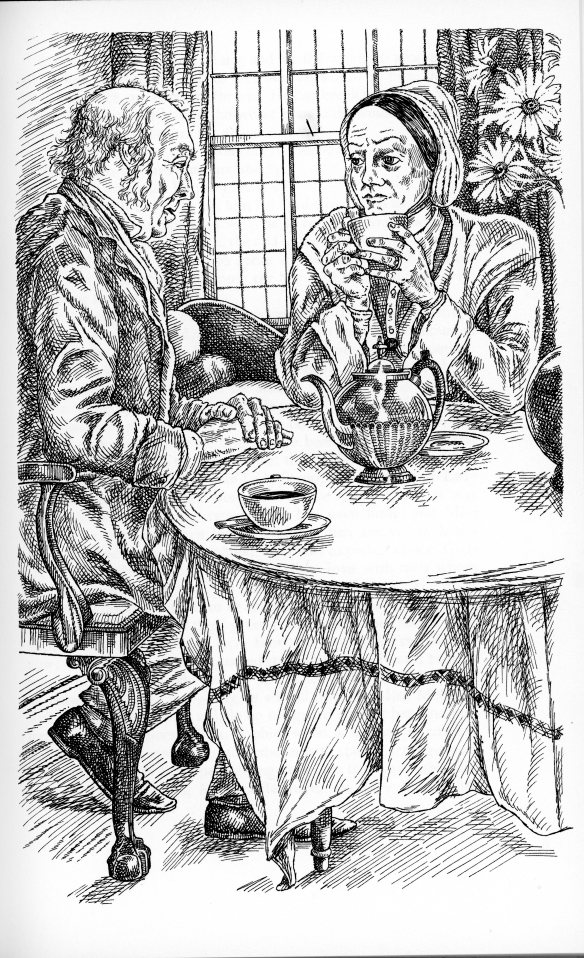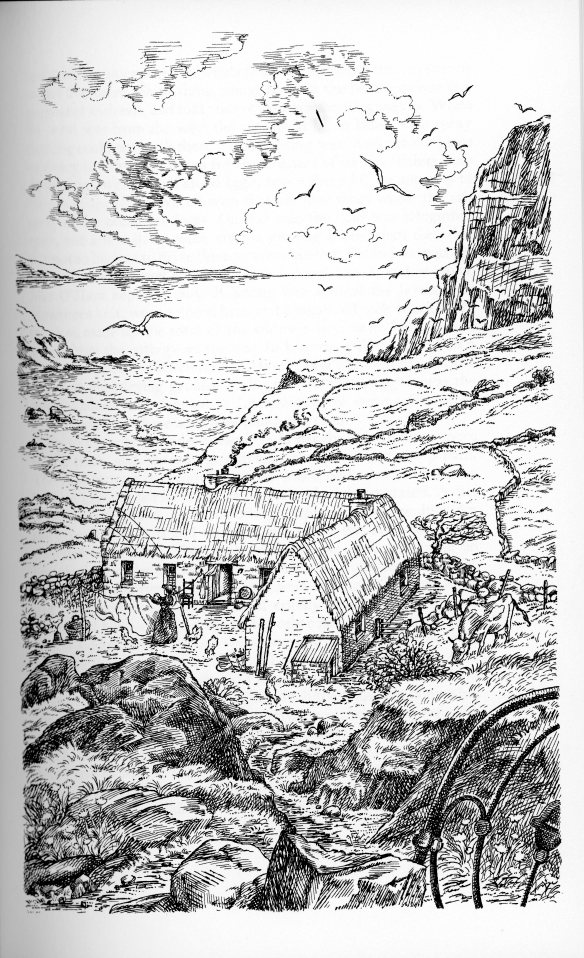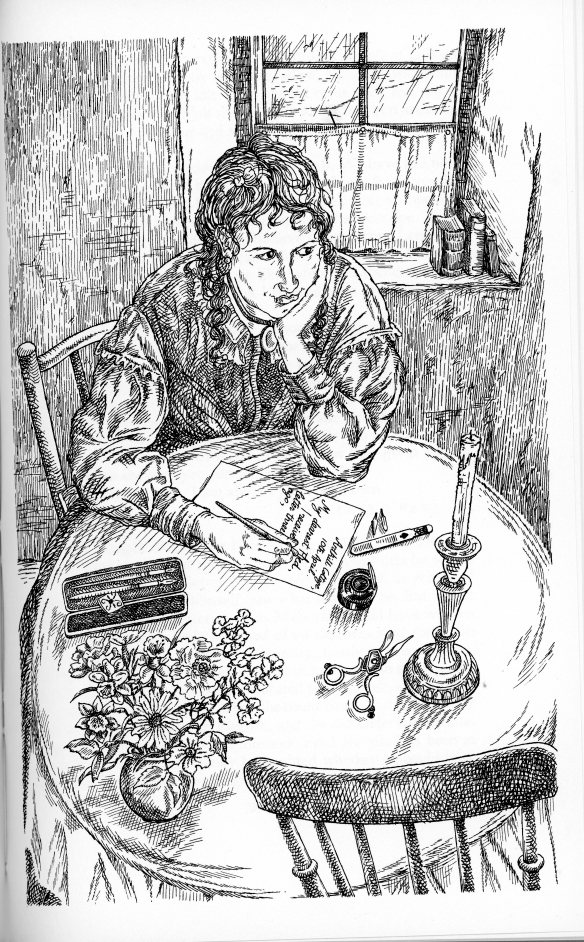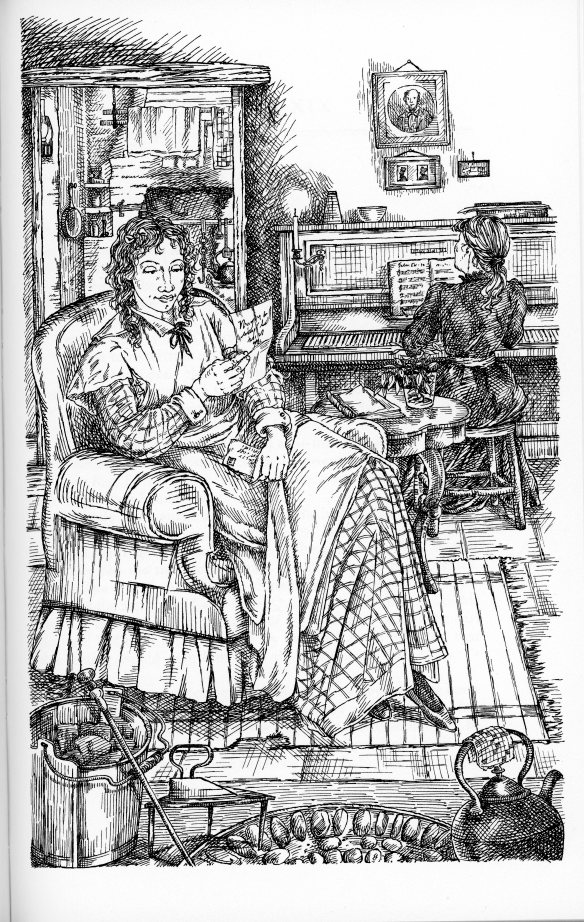In this fifth story of the Folio Society’s collection of Ivan Turgenev’s stories, the author, with his usual descriptive detail, has in essence, translated Shakespeare’s tragic king to his own time and place, with the identity of the massively strong giant landowner, Harlov, brought down by the response of his two daughters to his generosity prompted by confronting thoughts of his eventual death.
There is no Cordelia to remain loyal to Harlov and to die in his arms; this hero has only two daughters, one of whom does at least repent for taking advantage of the old man’s division of his wealth and household, possibly, as suggested by the narrator, to the end of her days.
Driven mad by the self-interested isolation and suppression of his personal needs by his family the larger than life owner of a number of serfs to whom he is not himself kind, brings about his own early death, in this way earning their sympathy and disapprobation towards the family.
In bringing his conclusion to an increasing crescendo our author has deviated quite a bit from Shakespeare’s own ending.
As usual, Turgenev’s exquisite, simply and fully detailed characterisation; pictures of the changing landscape, the weather and its effects, clearly sets the scene and carries along the narrative.
Elisa Trimby has produced faithful, ultimately dramatic, illustrations.
In addition to reviewing this book, this morning I watched a recording of last nights Six Nations rugby match between France and Ireland; and this afternoon, today’s matches between England and Italy and between Scotland and Wales.
This evening we all dined on Jackie’s classic cottage pie; crisp carrots; and firm Brussels sprouts, with which she drank Hoegaarden and I finished the Carménère.




























